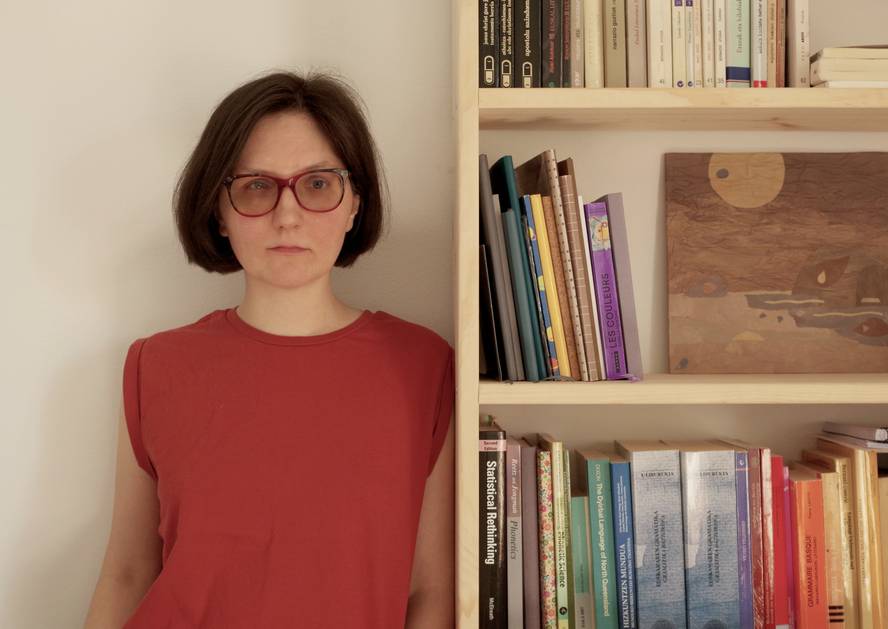“We do small things, not particularly affordable, but that’s how science advances.”
Dorota Krajewska is a Polish woman who, for the first time, had the opportunity to approach the Basque as she studied linguistics in her country. It has moved from opportunity to immersion and is now engaged in research.
He explains that when he was undergraduate he was eager and curious to learn a language that was not so well known, “that he would not be so boring, that he would not be another Indo-European language because he already knew English, French, Spanish…”. Thus, a professor recommended the Basque language, "this is how my adventure began with the Basque country", he recalls.
He came to Vitoria for Erasmus. By then I already knew how to say some basic phrases in Basque and was able to study some subjects in Basque. At the end of the degree, he decided to delve into the language and took the master's degree at the UPV.
Since then, he has mainly conducted studies related to the past of the language. "The truth is that my first idea was to make psycholinguistics, but I also had other ideas, because within linguistics I'm interested in almost everything."
Finally, he focused on analyzing the history of the Basque Country, that is, the changes that the language has undergone to become the current Basque. Compared to other languages, the corpus is not so large and written texts begin later, not all dialects appear… But it makes a precision: "We complain about it, compared to other languages it is. But we actually have more languages than most languages in the world, we also have to look at it. Relativize. We would always like more and always rejoice when new texts appear. But we have what to work with."
When talking about the findings, the hand of Irulegi is inevitably remembered. Krajewska clearly said: "We do not know in what language what is written above the hand, so we do not know if it is appropriate to investigate Basque philologists or others. Until this is clarified, and we never know if it can be clarified, I have nothing to say, because I do not understand that text. Not me, not those who found it."
Small and smaller discoveries
Apart from the hand of Irulegi, he has experienced in his field the impression of a discovery. Emotion can also be noted when you count. Before I tell you, I think about discoveries and how science works: "In principle I would say that I have not made great discoveries. But that in science is like this. Normally, and contrary to what most people think, scientists don't put themselves in the way that Newton had been said, waiting under a tree, to see if we get an apple and make a discovery. We do small things, not particularly affordable, but that’s how science progresses.”
Having said that, he acknowledges that at some point the facts that come out of everyday life occur, and highlights one: "2015 . It was around the year. XVII. We were working on a subordinate book, on the Christiana Doctrine of Esteve Materra, and, contrary to what we expected, we found a new edition, six years earlier, of the book that was considered lost.” It was an unexpected discovery because books are easily lost, burned easily… But in that case, he found it by writing the author’s name differently and searching in an Internet catalog.
One day he is told that he was in Denmark and so it was. "And this was made possible by the digitization of world library catalogues and the study we did about the author and his name."
They had another similar case, "but it didn't end that well." Another book, also XVII, was lost. the 20th century was explained that he was in a French library on the Internet, but the library explained that in 1940 the Germans bombed the city and burned thousands of books. Through him.
He is now researching the history of language, but, although he has so far devoted himself especially to grammar, he now focuses on phonetics and phonology. "It is not easy to deal with this aspect with historical data because we start from the written text, there are few old recordings with which you cannot go back many years."
Looking to the future, and at a time when there's so much talk about artificial intelligence, he doesn't think that artificial intelligence gets to do the job of linguists. "Maybe they'll make the jobs more boring, but because human languages have such fine aspects that they'll always need linguists."







